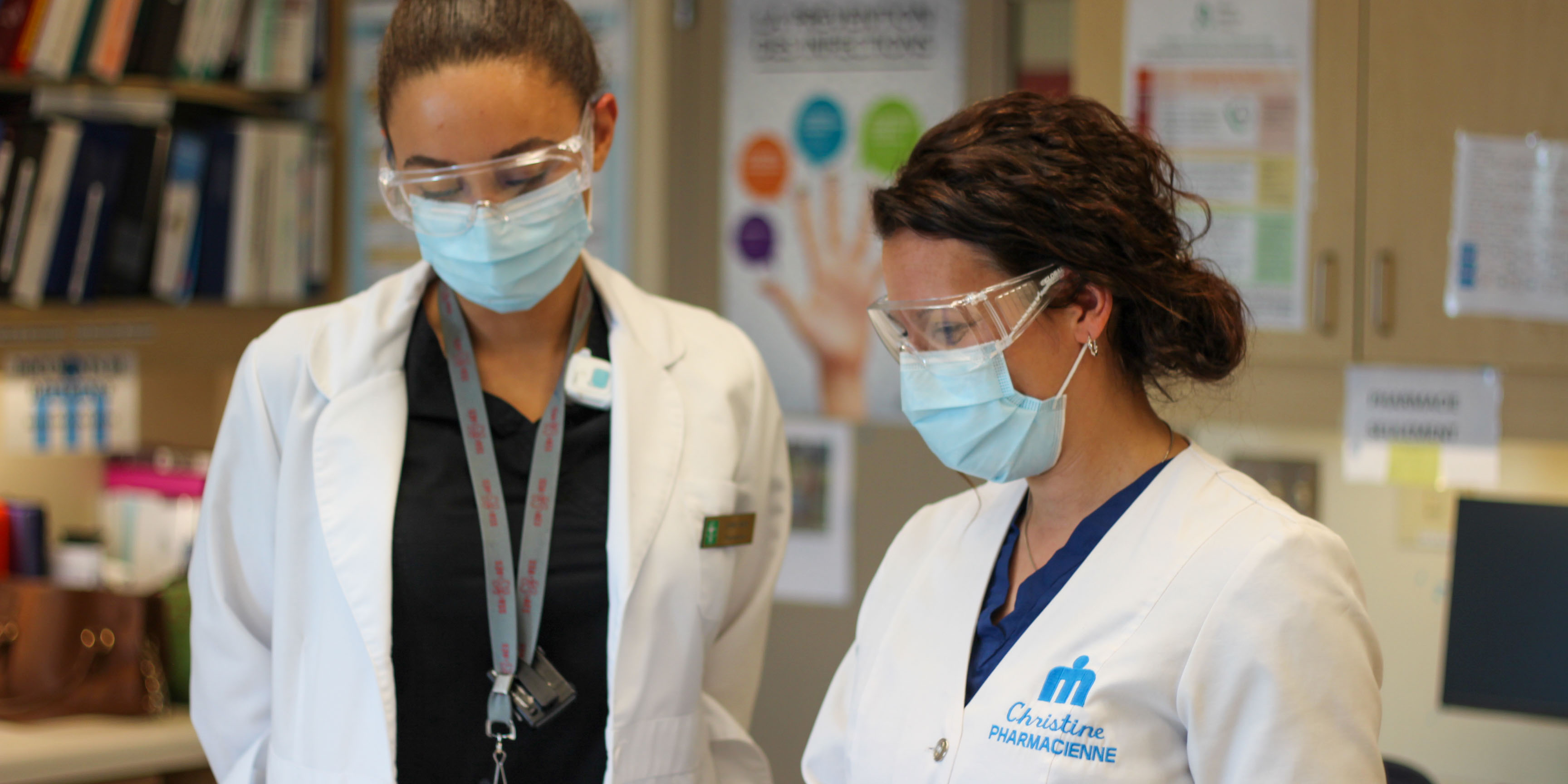Program competencies and educational outcomes
These are grouped into the following 4 main areas:
- Being a pharmacist (6 credits)
- Pharmacy and access to medication (13 credits)
- Pharmacy and patient-centred care (70 credits)
- The pharmacist as health educator and promoter (15 credits)
See the complete list of courses and the course sequences for this program.
Educational outcomes
Upon completion of the program, graduates will be able to:
- Contribute to optimizing pharmaceutical services and care
- Respond to the needs of the Francophone minority populations and communities they serve by advocating on their behalf for changes to the healthcare system
- Contribute to the literature and knowledge generation on pharmaceutical practices, particularly in Francophone minority settings
- Apply their expertise in pharmacotherapy to optimize pharmaceutical services and care in the healthcare system
- Integrate the best evidence in pharmacy practice
- Provide patient-centred care that takes into consideration the patient’s language and culture, particularly in the Francophone minority context
- Ensure accurate product distribution in a safe and appropriate manner for the patient
- Contribute to the evaluation and management of healthcare treatments and resources
- Communicate responsibly and proactively to encourage autonomy and confidence
- Work effectively with members of the healthcare team, including patients, pharmacy colleagues and other health professionals
- Practise according to their field of practice and expertise
- Ensure continuity of care for their patients with other professionals in order to promote the provision of safe care
- Demonstrate leadership skills and a sense of initiative in the practice of their profession
- Demonstrate workplace management skills and respond positively to challenges
- Respond to patients’ health needs by advocating for them in the health system
You wish to get involved in the PharmD program?
We are actively recruiting adjunct faculty members. Find the application procedures here (pdf, 120.52 KB).


